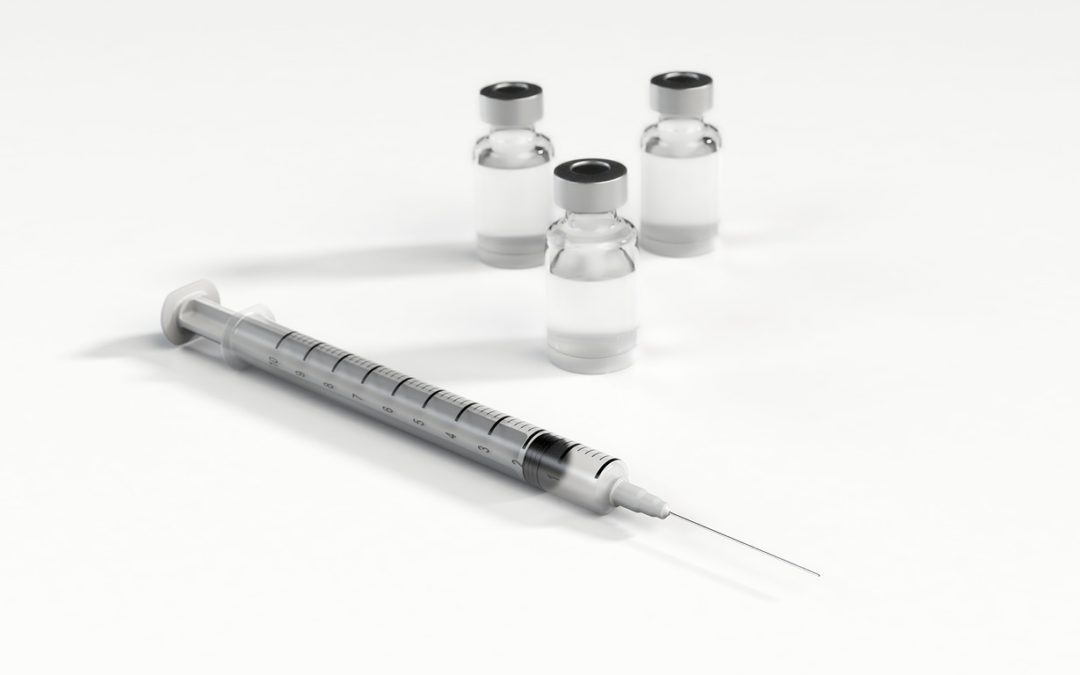
by Mission Partners For Christ | Oct 23, 2020 | How to Prepare, Make a difference
Serving With Care
We serve with care on all medical missions trips and in all our partnership actions, whether it is during a worldwide pandemic or a regionally located crisis. Mission Partners for Christ and our partners are comprised of medical staff and volunteers, as well as other professionals and members of communities. Also we are covered in prayer by many church groups, community members, and readers like you who choose to partner with us in that way. Prayer is a wonderful way to get involved.
Your donations also help us to purchase quality medicines, supplies, and other items needed for our medical missions work. We appreciate the many ways you help us to be serving with care. If you have never been on a medical missions trip overseas, and wonder what it might be like, we want to let you in on some of the ways we are able to do this.
Patients
Patient safety means the world to us too, as medical professionals and believers in Christ. Each person who comes to us for medical help receives the best possible care. So although we might be in different spaces than where we usually might work, we are still observing the highest standards of universal health precautions. Supplies are shipped, supplied to us through partnerships, or bring with us the very items we will need to compassionately provide good health care services.
Actually, we are often blessed to be able to leave surplus behind for the local doctors and clinics to use when we go, and to give certain types of items to patients and their families for their use when they go home. We make sure each patient receives post-care instructions they can understand. This helps them maintain their good progress. We share the gospel in different ways when we go too. Not only in what we do, say, or give, but how we do these things.
Volunteers
At Mission Partners for Christ, we take safety seriously. Though we go into potentially dangerous regions, as well as places where Christians sometimes encounter danger for speaking openly about Christ, certain practices and policies are in place to help us all stay together and safe. When you volunteer with us, we share more with you about the different standards and guidelines that help us work together safely. There are some things you can go to our website and preview too. Though we cannot travel yet, there are still some ways you can prepare to serve during this season.
Traveling With Care
We observe the laws of the lands we are visiting, and the regulations of specific regions too. Our passports and vaccinations are up-to-date, for example. If you are someone who plans to travel with us, or you think you might, now is a great time to begin getting started on renewing your passport or obtaining your first one, if your passport is outdated or you do not have one yet. We comply with all government guidelines as well as recognized universal health practices or guidelines.
At this time in 2020, we have been unable to travel due to passports not being issued during the worldwide pandemic, but hopefully this is changing soon. When it does, we will continue to observe the best standards of preventing spread of disease and while serving with care. We are getting ready now to go. It’s good to check on the website to see what vaccinations you may need, as it can take time for you to set up an appointment for the right vaccines. It’s well worth it so that you’ll be ready to travel with us when we are able to go on the trip to Benin!
Would You Like to Learn More?
We’d love to answer your questions about how to get involved in serving with care too. Click here to submit your question via our contact page. We look forward to hearing from you!

by Mission Partners For Christ | Oct 12, 2020 | How to Prepare, Make a difference
Getting Ready to Travel With Us?
The Mission Partners for Christ trip to Burundi is coming up in July 2021! You may have already begun to prepare by getting your vaccinations and passport updated. But if you have not yet, or this is your first trip or even if you haven’t gone on a trip in a long time, you will need certain things as you are getting ready to travel.
Updating Your Passports
As always when traveling out of the country, we each need to have updated passports so that everyone will be able to secure the right visas and show proper identification for authorities in the countries we travel through or enter. Passports are usually good for a specific period of time, so you will want to find your passport if you already have one and check the expiration date. It needs to be valid for at least six months beyond the intended dates of your trip. The Burundi trip is from July 9 to July 19, so your passport needs to be valid for at least 6 months after the return date of your trip.
Many countries have their own 6-month rules and you could be denied entry to a country we pass through if your passport is not good for at least 6 months after July 19. If you were over 16 when it was first issued, it was good for only 5 years, so it’s important to check the date, because it’s easy to forget when you have not used it in a while. Some travel experts even suggest that if your passport expires within a year (12 months), to go ahead and start the renewal process.
Starting the Process as Soon as Possible
Due to delays this year in the government agencies that issue passports, you will need to allow for more time to pass to receive your updated passport, as passport agencies complete applications from spring and summer of this year. Many people are reporting that there is about a 10-week wait. With this uncertain wait time, it is worth your while to go ahead and mail in your passport now if you want to be sure it’s updated in time for the upcoming trip.
You will also want to get your yellow fever vaccination and any other vaccinations recommended by your doctor. This is not a vaccination available at all doctor’s offices, so now is the best time to begin calling and finding the closest location where you can be vaccinated. You can find your closest location here at this CDC-hosted page.
Getting Ready Now Will Give You Peace of Mind
As with any trip overseas, getting ready to travel as early in advance as possible gives you more peace of mind because you know all your papers are in order, your vaccinations are taken care of, and anything else needed within a certain time frame is completed. You will have more time to pray, share the news with your family and friends, and do anything else you would like to do before going on the trip.
Are you curious about Mission Partners for Christ or our upcoming trip to Burundi? We’d love to answer your questions about how to get involved in serving with care too. Click here to submit your question via our contact page. We look forward to hearing from you!

by Mission Partners For Christ | Feb 15, 2019 | How to Prepare
Have you ever thought about what you would do if you got sick while traveling? We hope this never happens, but sometimes it’s reality! When traveling, your body adjusts to a new environment, schedule, and eating habits! This can make your body fight back and show symptoms of sickness.
To prevent yourself from getting in this unpleasant situation, we want to give you tips on what to do to avoid getting sick while traveling:
1. Don’t Drink Anything But Bottled Water
In just a few weeks we will be posting about the world’s water crisis. The fact is, there are places in the world that have contaminated water. Do your research of the place you are traveling, and if it’s an area that does not offer safe drinking water, be sure to only drink the bottled water. This will help you avoid vomiting, diarrhea and contracting a disease.
2. Keep Your Hands Clean
“Hand washing is the single most important thing anybody can do to protect their health,” advises. Dr. Philip Tierno, professor of Microbiology and Pathology at NYU School of Medicine and author of The Secret Life of Germs.
Keep in mind, if the water where you are staying is contaminated, this is not a way to help you avoid sickness. Instead, keep your hands clean through hand sanitizer or other sanitizing methods.
3. Get Your Vaccinations
It’s important to visit with a Travel Clinic before traveling overseas to get up to date on health information as well as vaccinations. We created a Complete Vaccination Guide For Travels you can refer to as well!
4. Take Vitamins
Get your body’s immune system working at its best by taking vitamins before and during the trip! A few suggested vitamins are a probiotic, Vitamin C, and Elderberry. Talk to your doctor about the best vitamins for immunity.
5. Prevent Bug Bites
Bugs carry diseases — some deadly such as Malaria. Click here to read everything you need to know about Malaria. The key to avoiding bug bite related illnesses is to do your best to prevent bug bites in the first place! Bring the best bug spray and a mosquito net for bedtime if you are traveling to an area with Malaria. Also, where clothes that cover your skin if possible. It may be hot, so be sure the material can wick away moisture.
6. Stay Hydrated
I know we mentioned bottled water, but we also want to mention the importance of staying hydrated. If you are working in a hands-on environment with a busy schedule, it’s easy to forget to take frequent water breaks. But, to avoid illness and to keep yourself healthy, make staying hydrated an important priority!
What tips do YOU have for avoiding sickness while traveling? Tell us in the comments!

by Mission Partners For Christ | Mar 5, 2018 | How to Prepare
Most of us are caught up on routine vaccinations, but before you go on a mission’s trip, you need to be sure you have the right vaccinations that go with the area you are traveling to.
We want to make it easy and walk through the possible vaccinations that you may need as well as educate you on each disease and virus you can contract if you don’t protect yourself.
Below is a detailed chart of the vaccinations each area around the world recommends before travel:
| Region |
Recommended Vaccinations |
| Central America |
Hepatitis A, Typhoid, Hepatitis B, Malaria* |
| Mexico / Caribbean |
Hepatitis A, Typhoid, Hepatitis B, Malaria* |
| South America |
Hepatitis A, Typhoid, Hepatitis B, Yellow Fever, Malaria* |
| Europe |
Hepatitis A, Typhoid, Hepatitis B |
| Australia |
Hepatitis A, Hepatitis B, Japanese Encephalitis |
| Asia |
Hepatitis A, Typhoid, Hepatitis B, Japanese Encephalitis, Malaria* |
| Africa |
Hepatitis A, Typhoid, Hepatitis B, Yellow Fever, Meningitis, Malaria* |
Here’s the breakdown of each vaccination…
HEPATITIS B VACCINATION
Especially for those who attend medical mission’s trips, it’s important to get the Hepatitis B vaccine. The virus is contracted through blood or bodily fluids by an infected person. There are not systems in place to protect you from exposure in the hospitals of third world countries the way hospitals are set up in the U.S. The symptoms of Hep B can lead to lifelong health issues.
HEPATITIS A VACCINATION
Exposure to Hepatitis A affects the liver through food or water that has been poorly sanitized. As a result, Hep A leaves a person sick and nauseous for months. At home, you prepare your own food or order food from a restaurant that has preparation health guidelines to follow. But when you are overseas, food is usually prepared for you or is left sitting out without proper precautions. You aren’t always able to control the sanitization of the food you eat, so it’s important to protect yourself.
TYPHOID VACCINATION
You’ve all heard of the bacteria Salmonella. It’s the reason we can’t enjoy raw cookie dough as frequently as we like. Well, Typhoid is a fever caused by Salmonella. The same symptoms as Hep A occur as a result of Typhoid exposure. If left untreated, the sickness and fever can be life-threatening.
YELLOW FEVER
Another disease that attacks the liver is the Yellow Fever virus. Mosquitos in tropical and subtropical areas of the world like South America and Africa spread the Yellow Fever virus. The symptoms vary but can potentially be dangerous.
JAPANESE ENCEPHALITIS
You’ve probably heard of malaria, but there’s another disease that can be spread by mosquitos in parts of Australia and Asia. Mosquitos are not only outdoors, they can come inside as well so they are nearly impossible to avoid altogether. Japanese Encephalitis causes mild sickness but in some cases can produce inflammation of the brain and be life-threatening. Contracting this disease is rare, but it’s worth protecting yourself.
MENINGITIS VACCINATION
You will want to be sure to eliminate the threat of Meningitis. This disease is caused by bacteria that is passed through the saliva of someone carrying the disease. If you contract Meningitis, you can become very sick and even obtain an infection of the bloodstream.
One more thing
Be sure to also get a malaria preventative prescription.
So far, there is no vaccination for malaria, but there are a few preventative prescriptions for the disease that can be taken throughout your trip. Malaria is also contracted by mosquitos and can lead to severe health concerns if left untreated. Ask your doctor for a prescription and talk through the side effects of the medication. To prepare for any side effects, take pills before leaving and see how your body responds. Be sure you have enough pills and can get a different prescription before your trip if needed!
It’s important to take any potential fears out of your mission’s trip experience, and one way to do that is to be prepared with the right vaccinations you need to stay healthy.
Note: Talk with your doctor for more information on these recommended vaccines so you can make the right decision for you!





